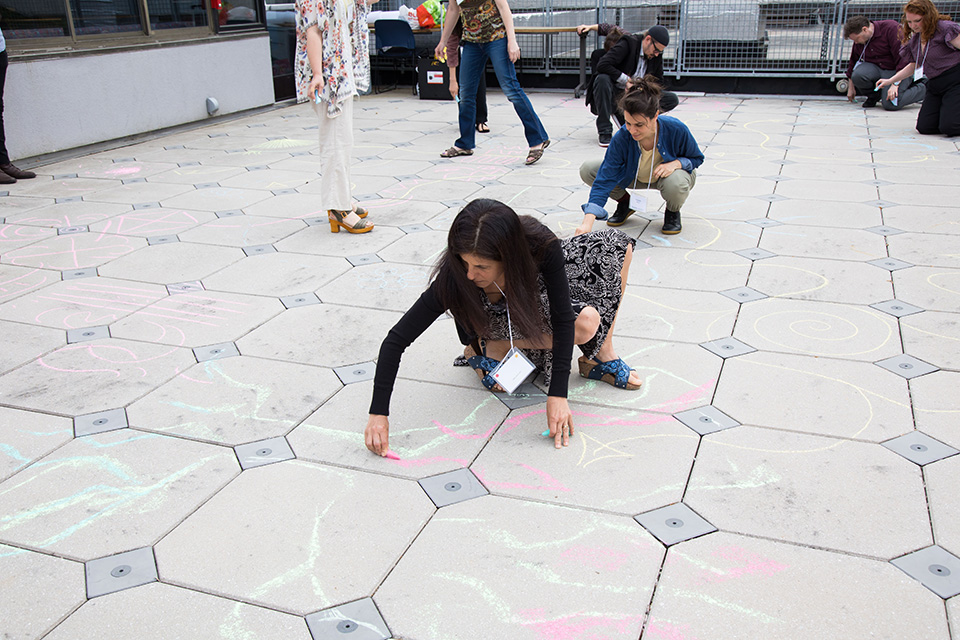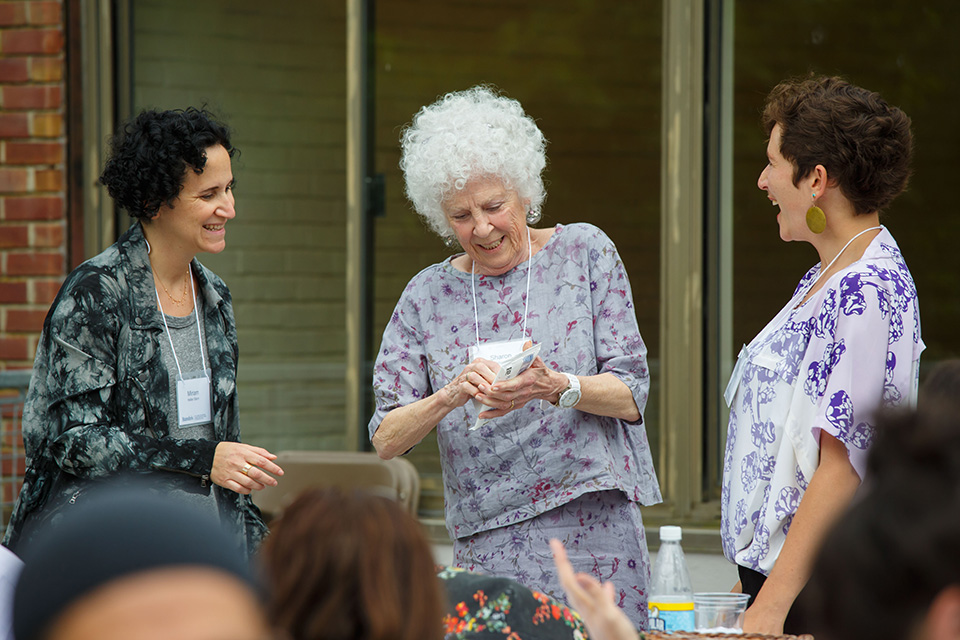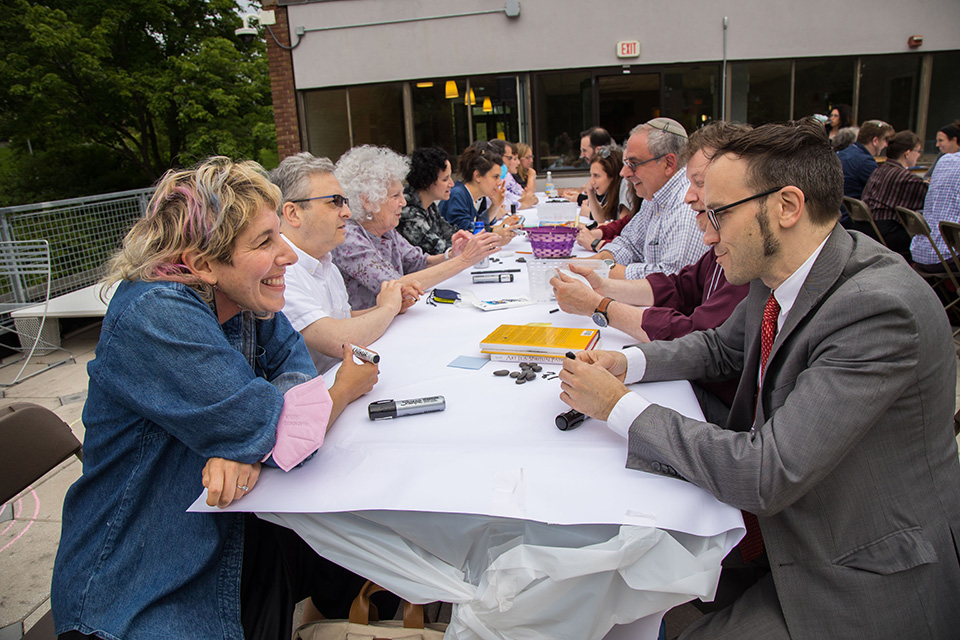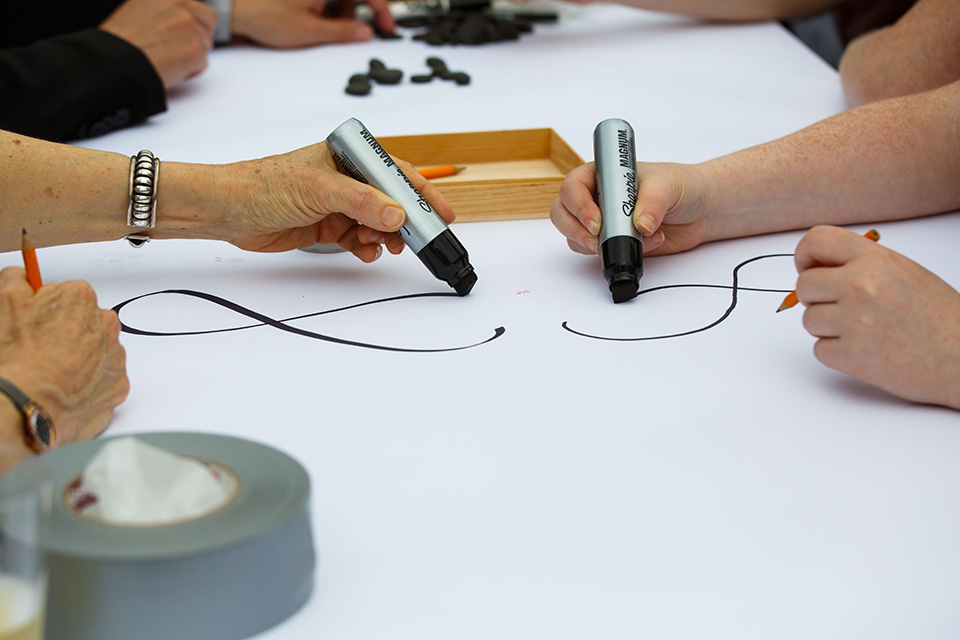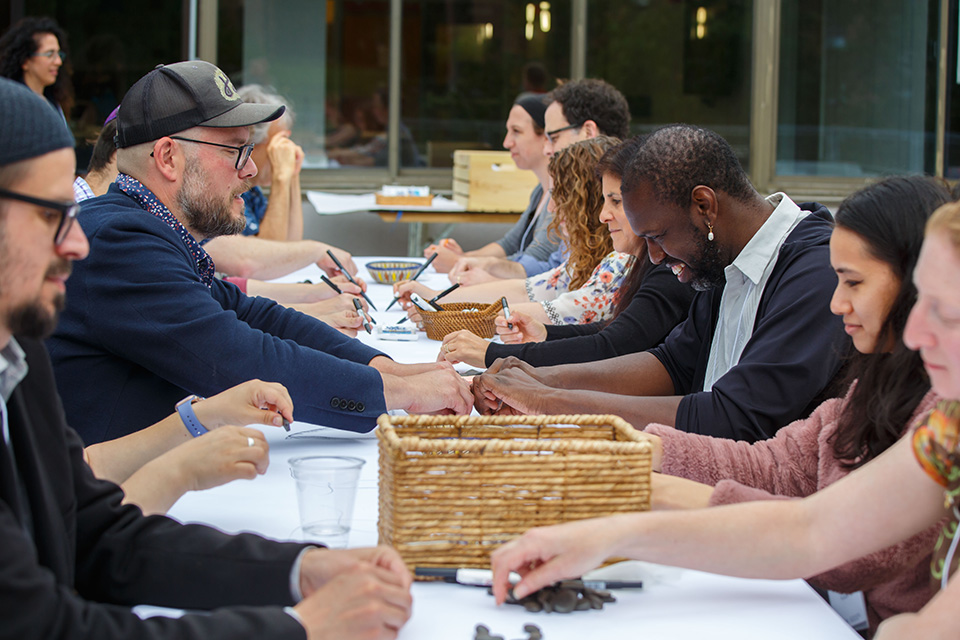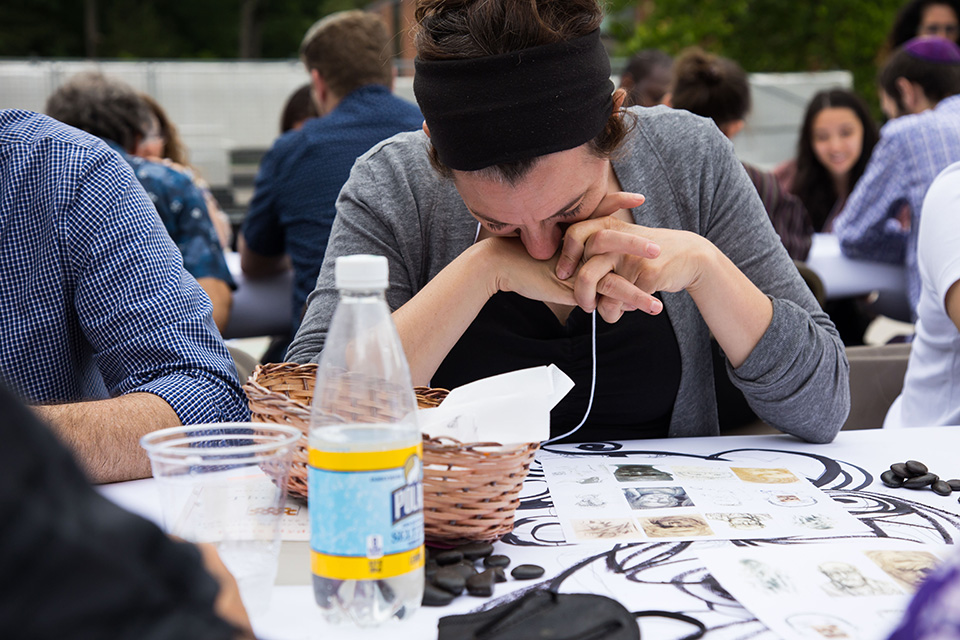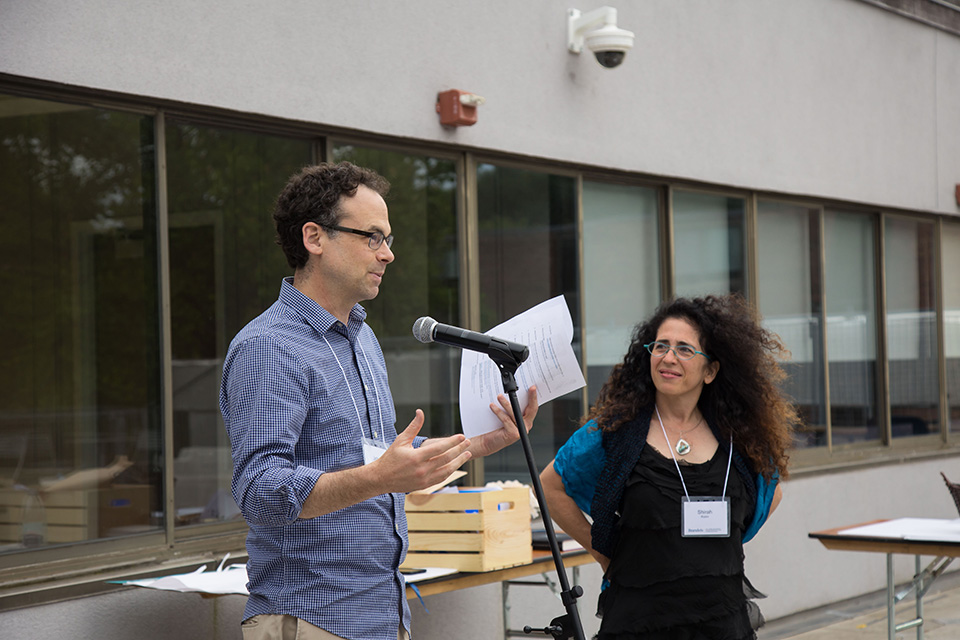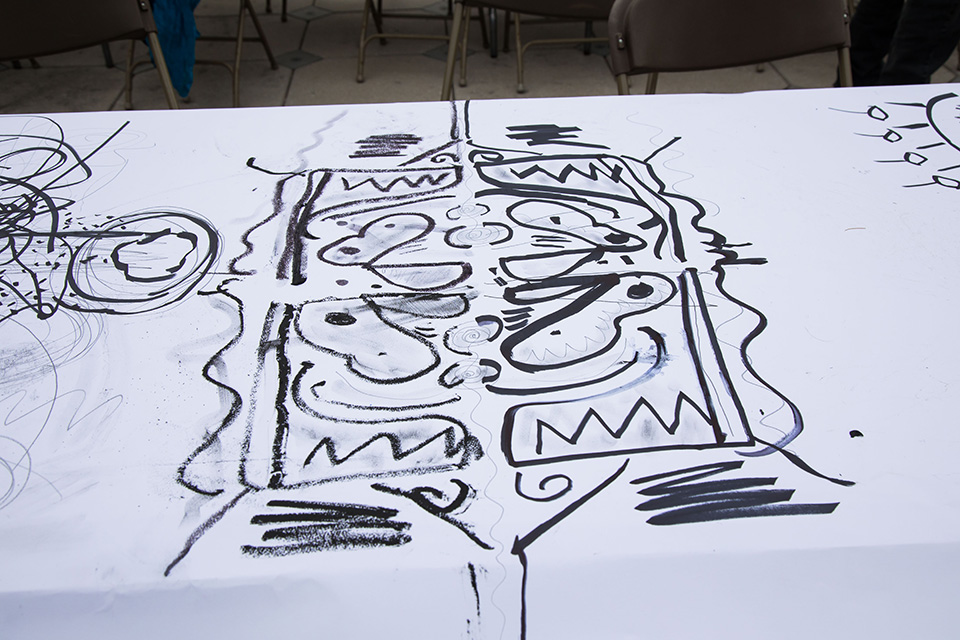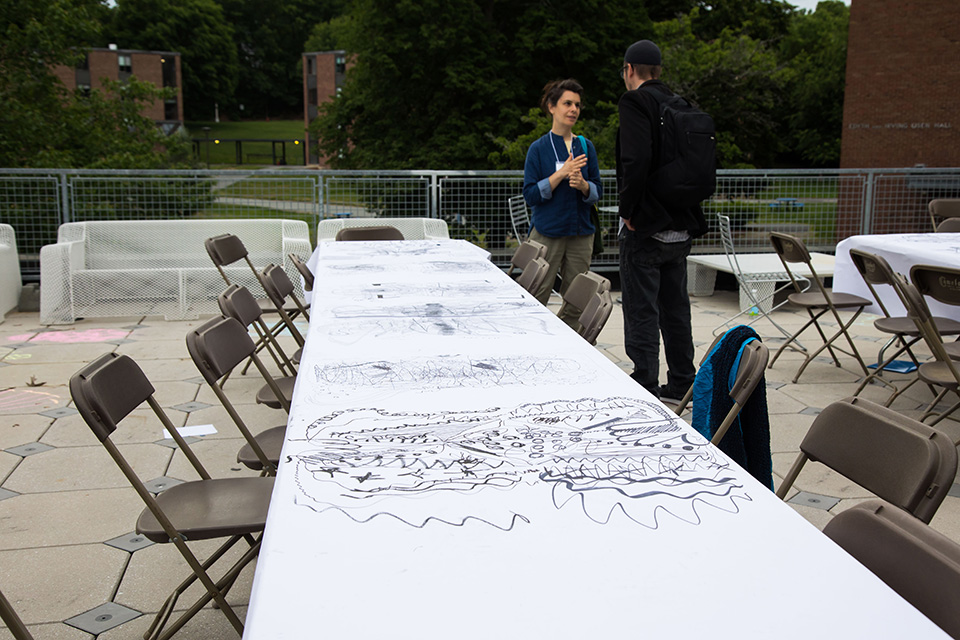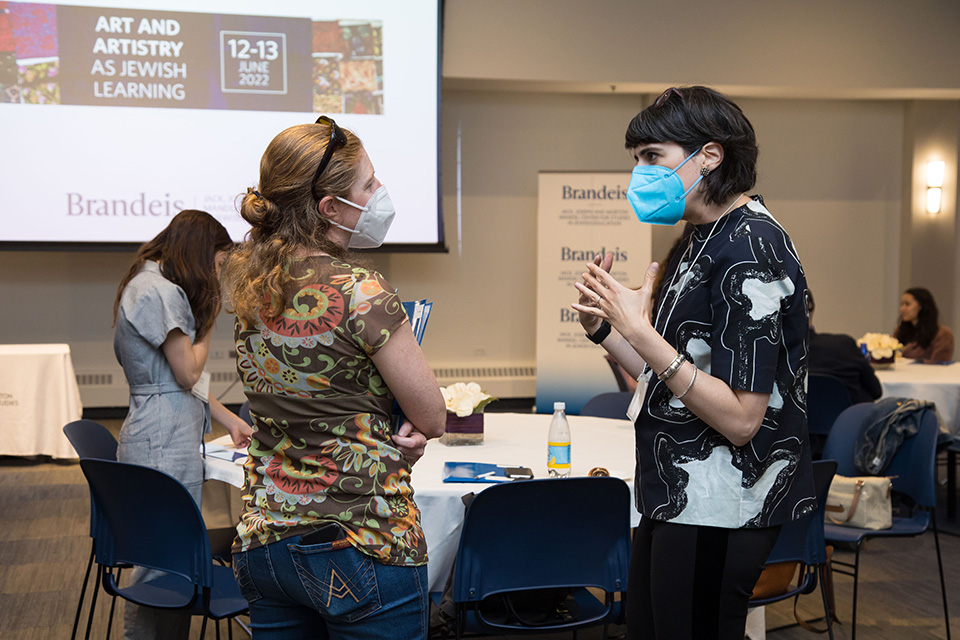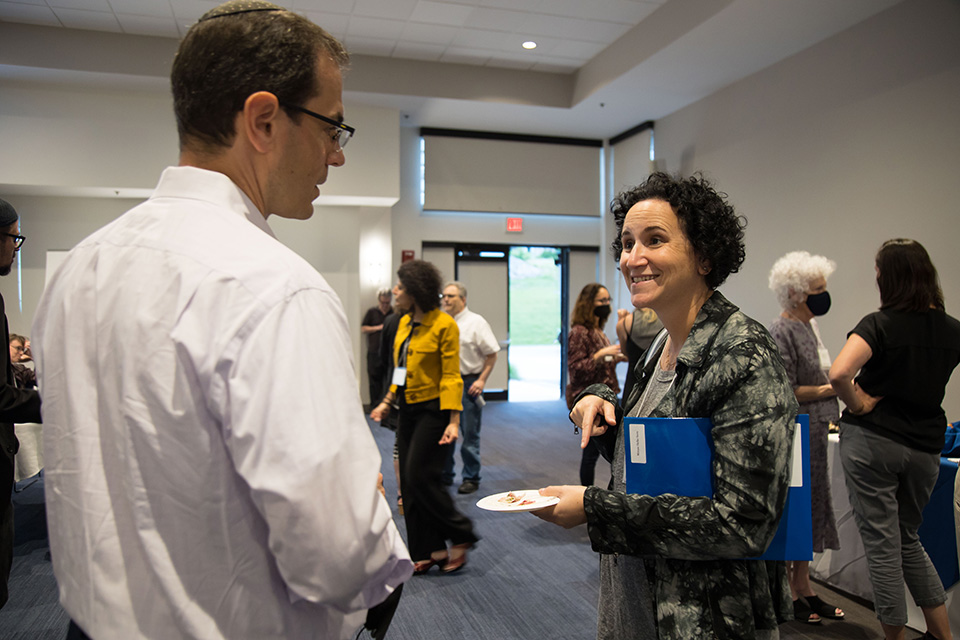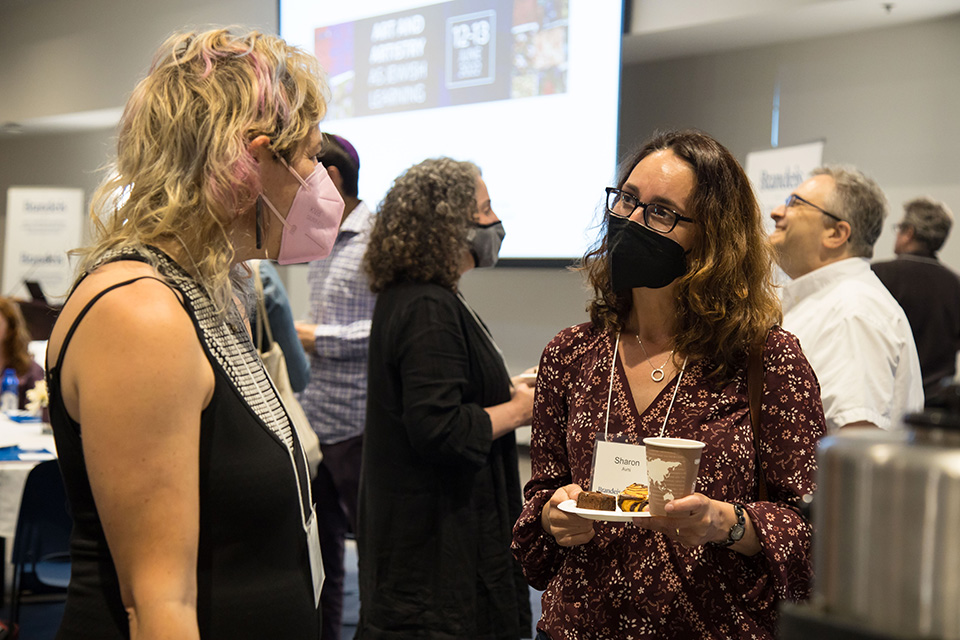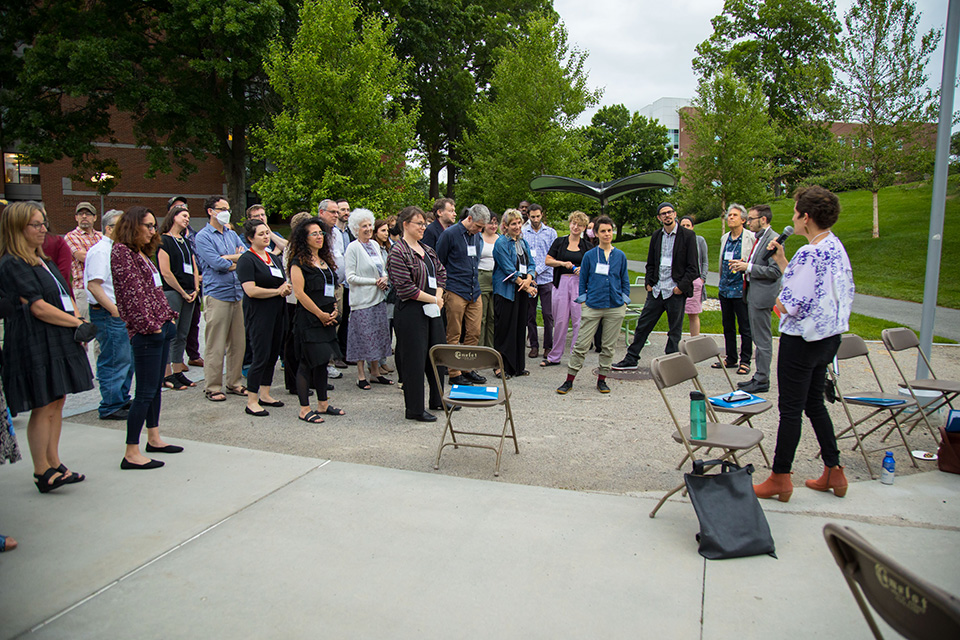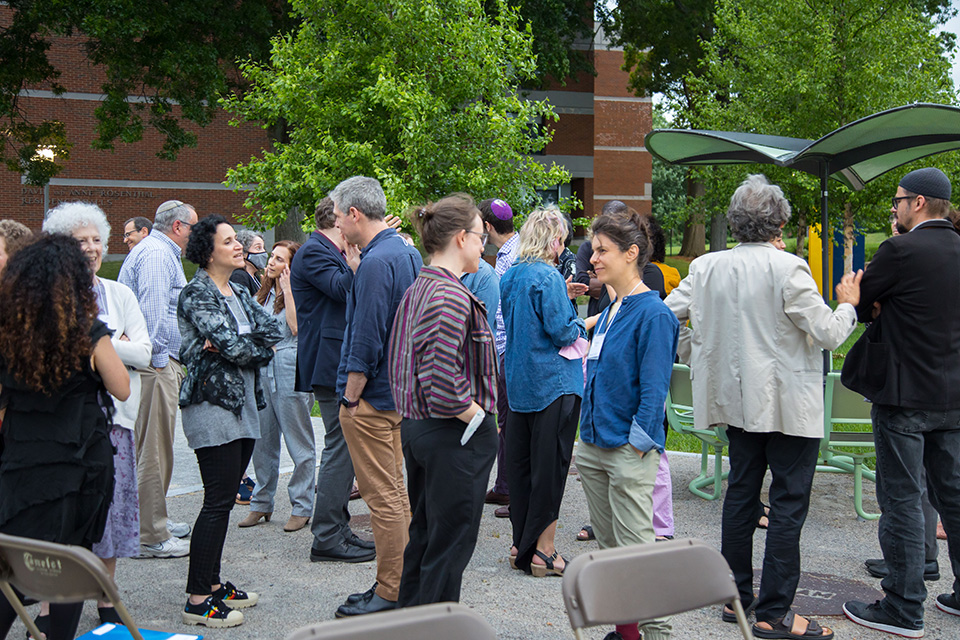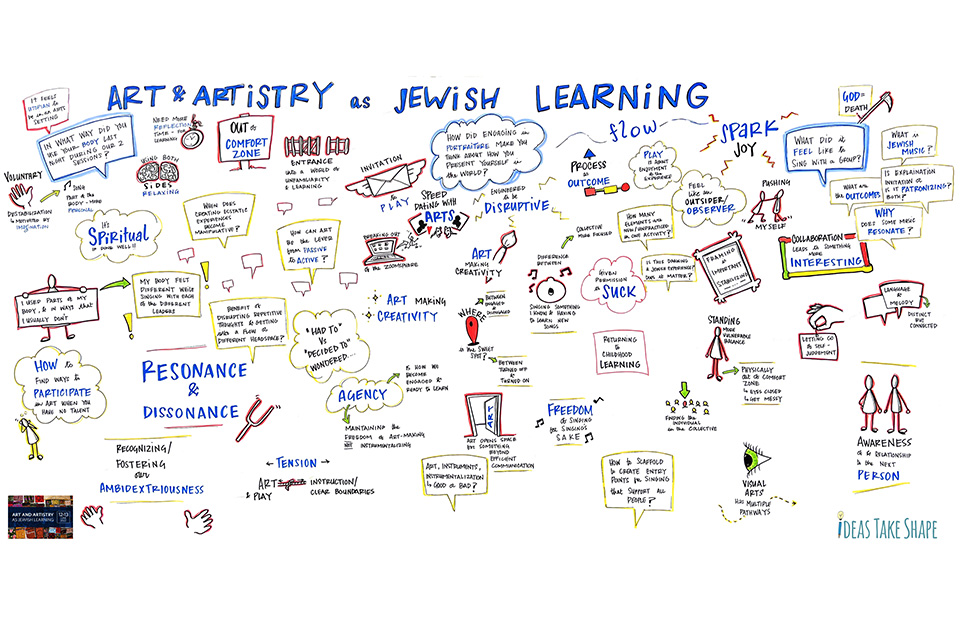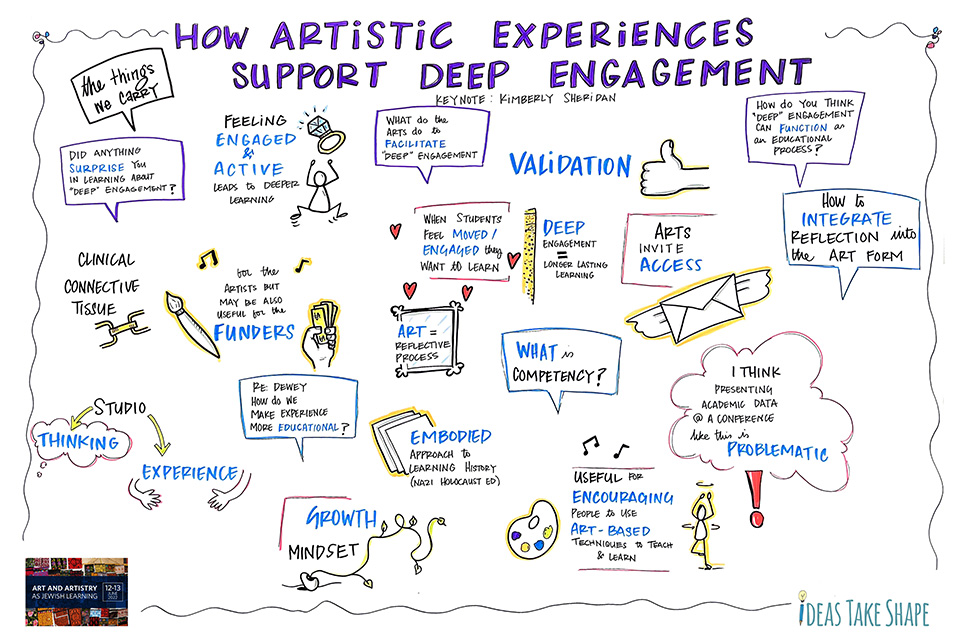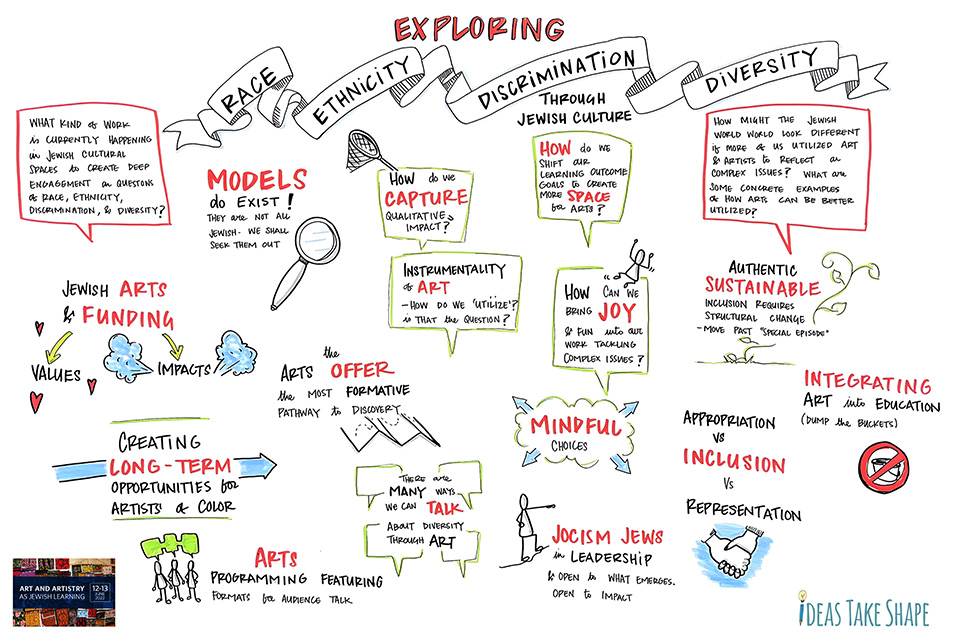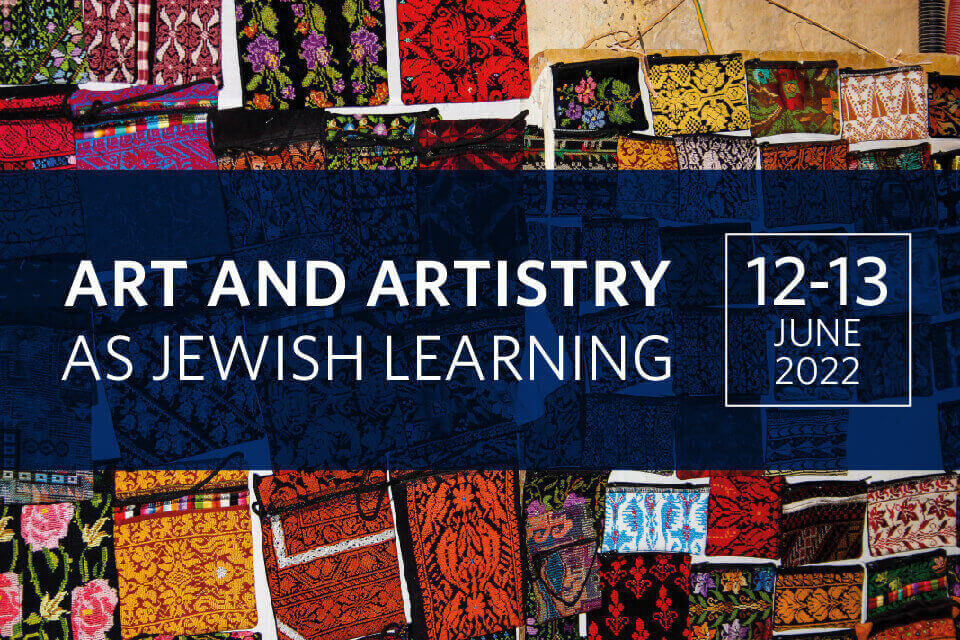
June 12-13, 2022
Hassenfeld Conference Center, Brandeis University
This in-person conference brought together scholars of education, artists, funders and educational policy makers seeking to investigate the holistic, aesthetic, affective and cognitive dimensions of arts experiences to understand their educational potential. Whereas previous studies of Jewish cultural arts have framed the arts primarily as a gateway towards increased Jewish communal involvement, this conference began from the presupposition that an encounter with or production of Jewish culture and art offers important Jewish and educational experiences in their own right. We sought to address key questions:
— How can the affective dimensions of Jewish arts experiences spark journeys of learning and discovery?
— How can the arts help us redefine and reframe theories of Jewish education beyond cognitive outcomes and the acquisition of information or "content," and towards the valuing of aesthetic experience and the flourishing of vibrant Jewish culture as a goal?
— What role can Jewish cultural arts play in life-long Jewish education, particularly for learners who are not members of Jewish institutions?
— How can the arts distinctively open up conversations about ethnicity, race, racial justice and equity in Jewish spaces?
We began with a series of creative experiences that provided us with case studies of the arts that we explored together, including a several drawing and visualizing activities led by Boston artist, Shirah Rubin, and a communal music session led by "Let My People Sing." Our keynote lecturer, Dr. Kimberly Sheridan, George Mason University associate professor of educational psychology and co-director of the Mason Arts Research Center, utilized our collective creative experiences to help us explore how people learn in the arts, and how context shapes learning.
Our roundtable discussion featured artists whose work addresses the critical themes of race, ethnicity, identity and discrimination: Anthony Mordecai Zvi Russell, a vocalist, composer and arranger specializing in Yiddish song; Galeet Dardashti, Sephardi/Mizrahi musician and scholar; Jenni Rudolph, executive director of Lunar: The Jewish Asian Film Project; and Rachel Linsky, a dancer/choreographer/educator of project Zachor. In conversation, these artists highlighted the unique ways that the arts create educational opportunities for Jews and non-Jews to explore these issues together.
Our final session featured three educators and community organizers whose work illuminates the multi-generational dimensions of Jewish arts educational settings and the various ways that creative projects encourage us to expand our understanding of the Jewish canon: Eva Heinstein, senior research fellow at the Jack, Joseph and Morton Mandel Foundation; Laura Mandel, executive director of JArts Boston; and Lex Rofeberg, co-host of Judaism Unbound.
Finally, the entire experience was captured and visually documented through a graphic recording (see below) synthesized by Karyn Knight Detering, and through a curation of our artwork, displayed throughout the conference room.
Throughout the conference, participants had opportunities to meet in small reflection groups bringing artists, educators, funders and community organizers together in shared conversations.
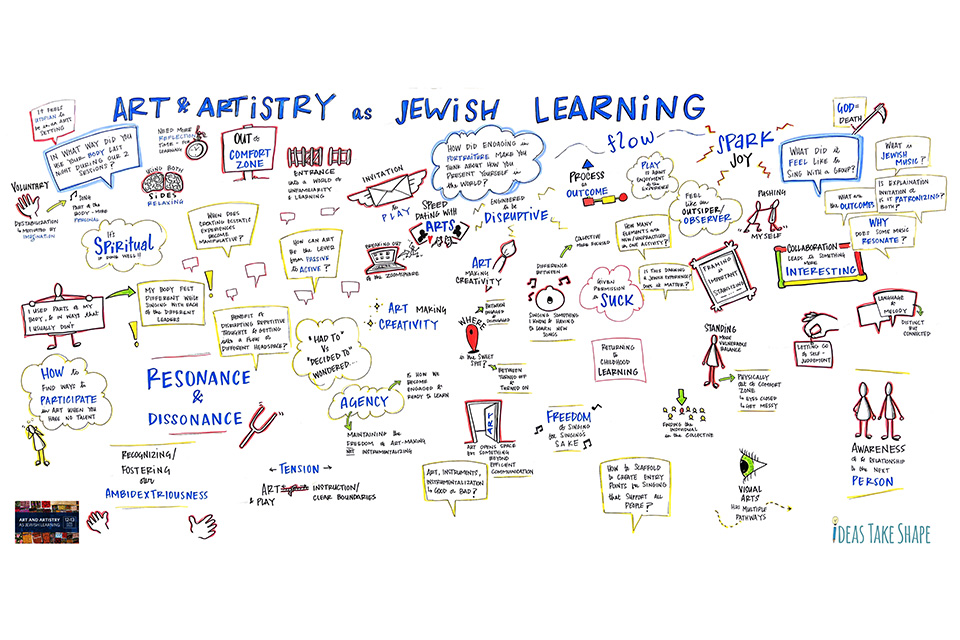
Graphic Recording Illustration #1
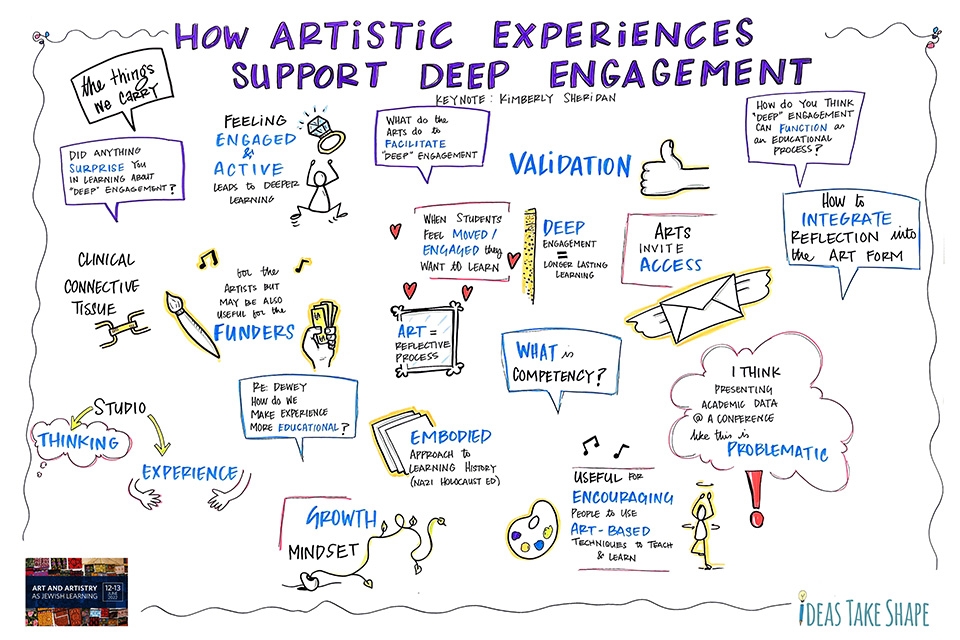
Graphic Recording Illustration #2
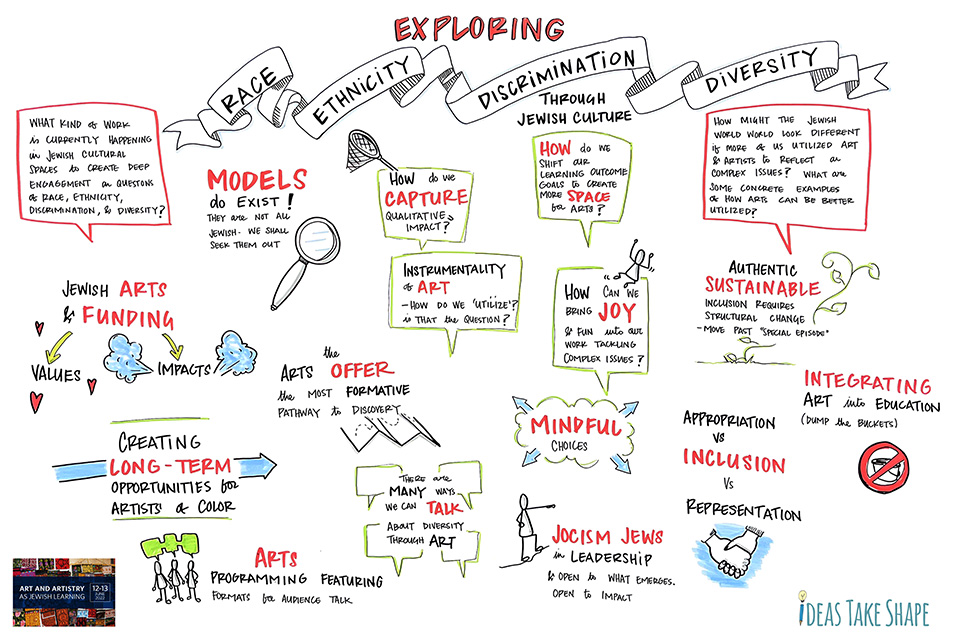
Graphic Recording Illustration #3
As a follow-up to the conference, Mandel Center Director and Spotlight Session host Jon Levisohn, recorded a Zoom conversation to explore questions generated by the conference and their significance for the field of Jewish education, with conference chairs Laura Yares (Michigan State University and director of the MCSJE project on Jewish Learning Through the Cultural Arts) and Galeet Dardashti (NYU), along with conference participants Eva Heinstein (Mandel Foundation), Miriam Heller Stern (HUC), and Laura Mandel (Jewish Arts Collaborative).
Watch the video of their conversation here.
PHOTO GALLERY
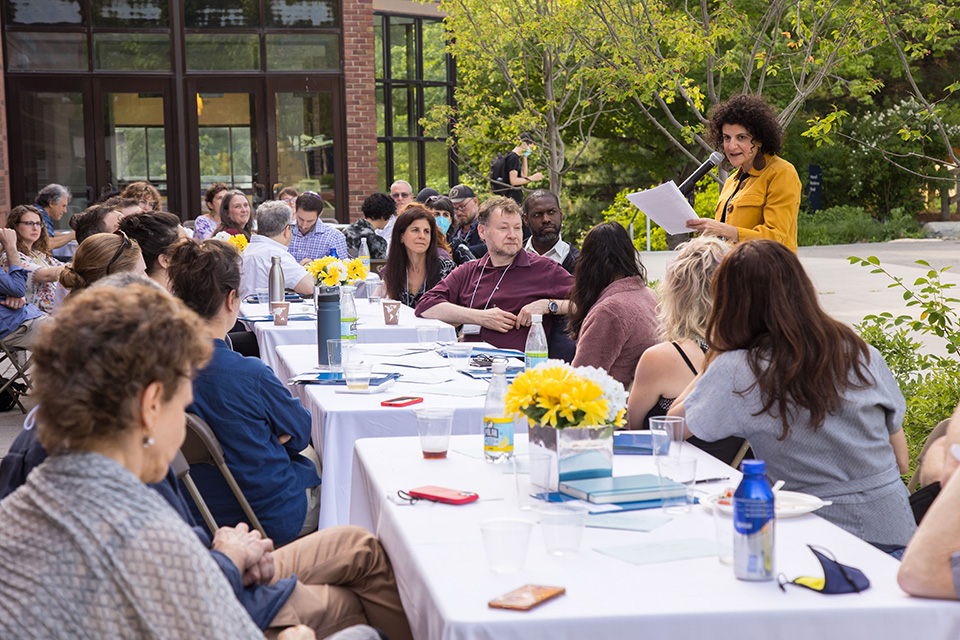
Galeet Dardashti introducing the conference.
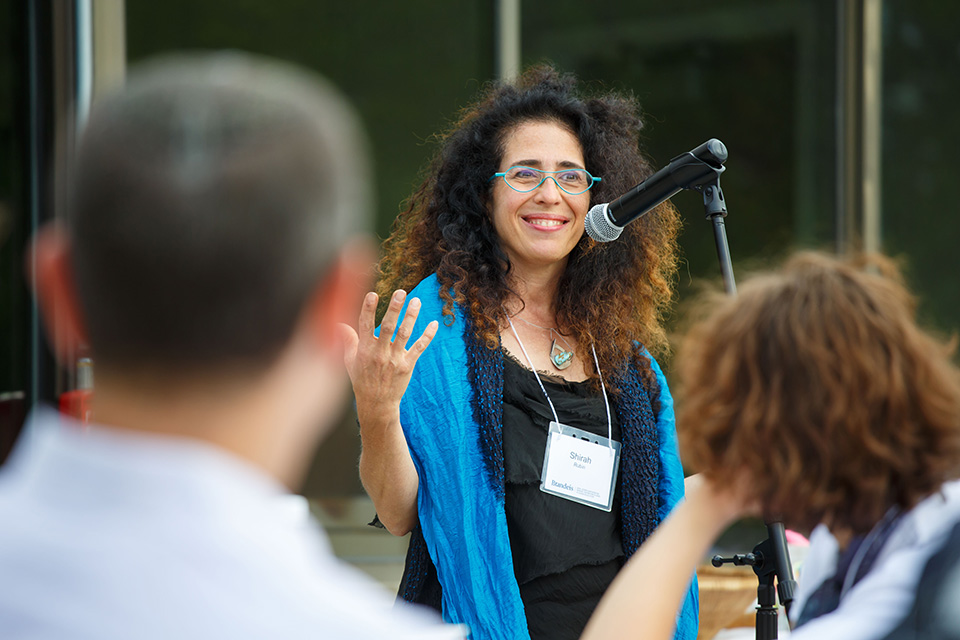
Shirah Rubin explaining the first activity.
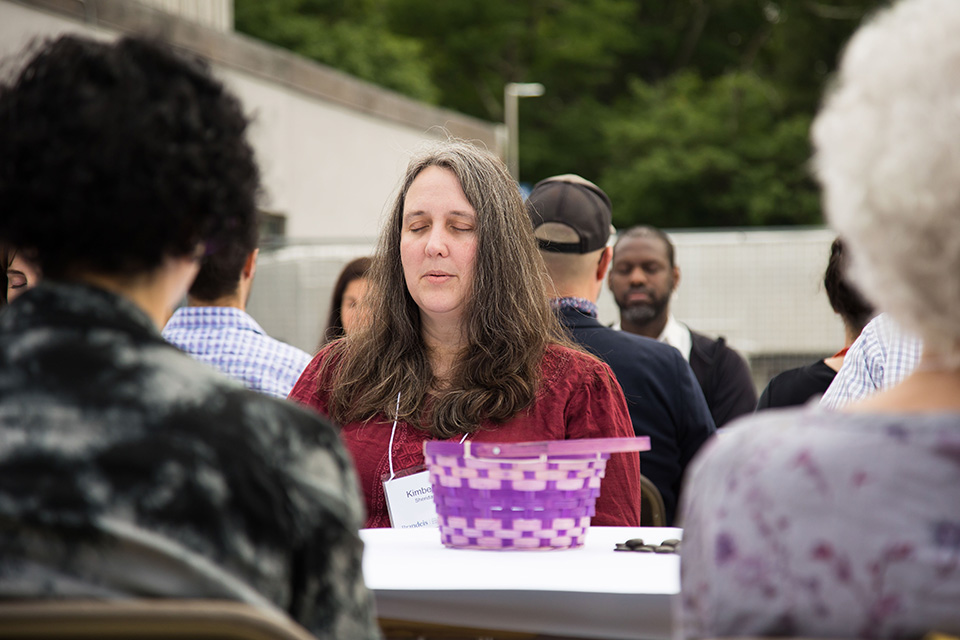
Participants following a visualization activity.
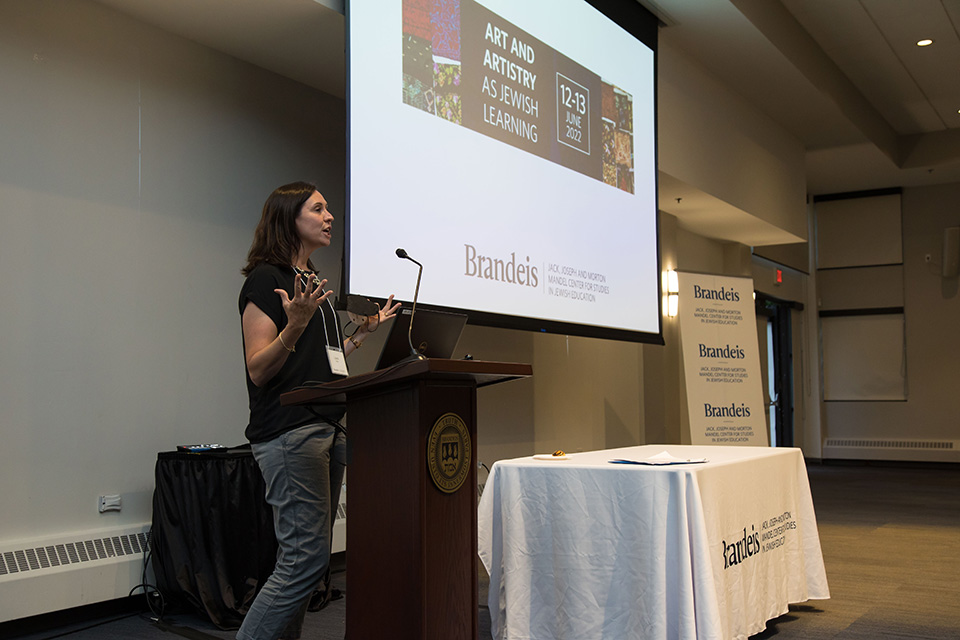
Laura Yares introducing the upcoming session.
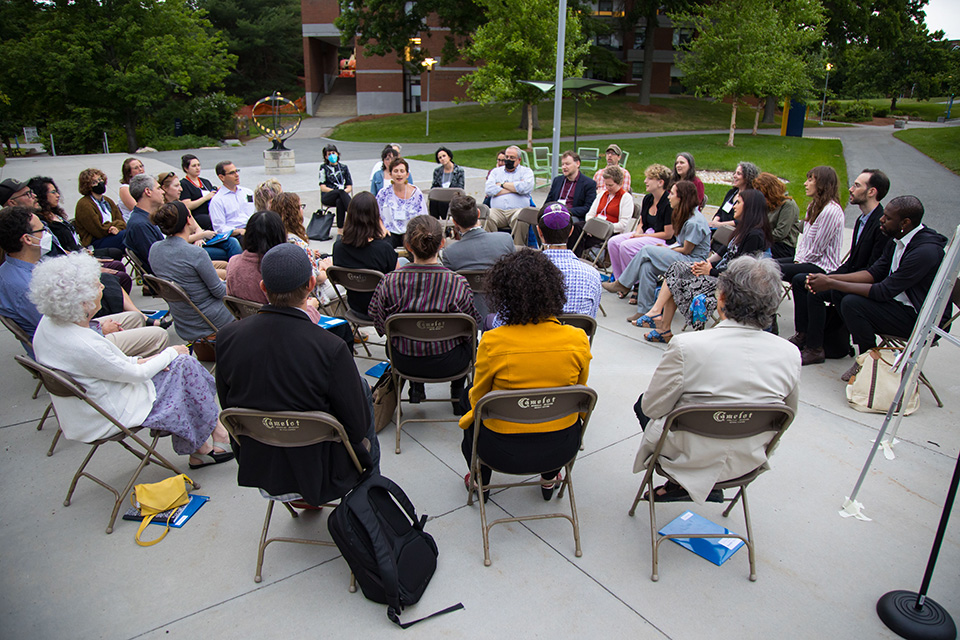
Ilana Lerman introducing Song Exercises.
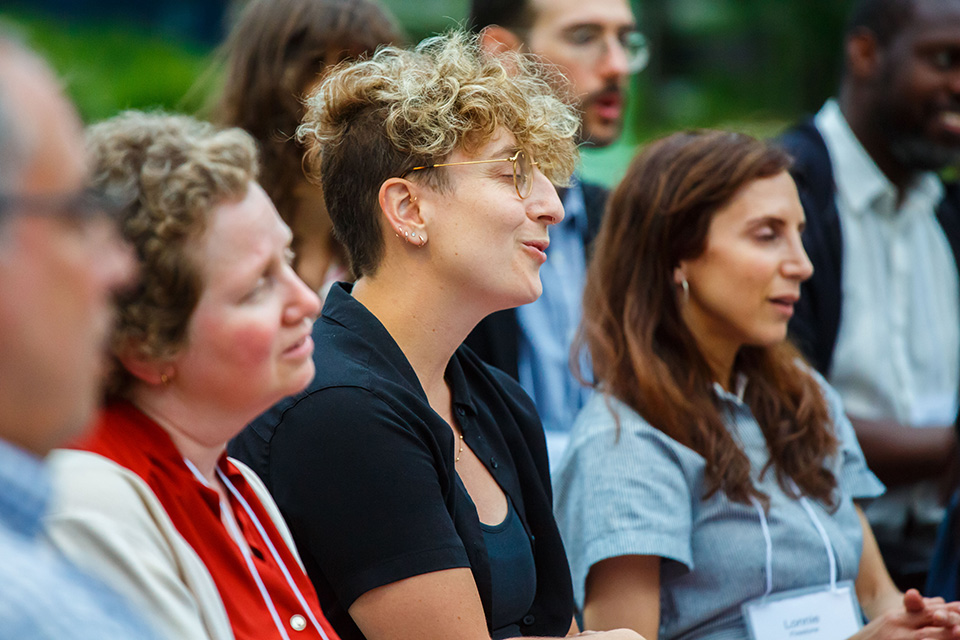
Group song with 'Let My People Sing' and shared learning.
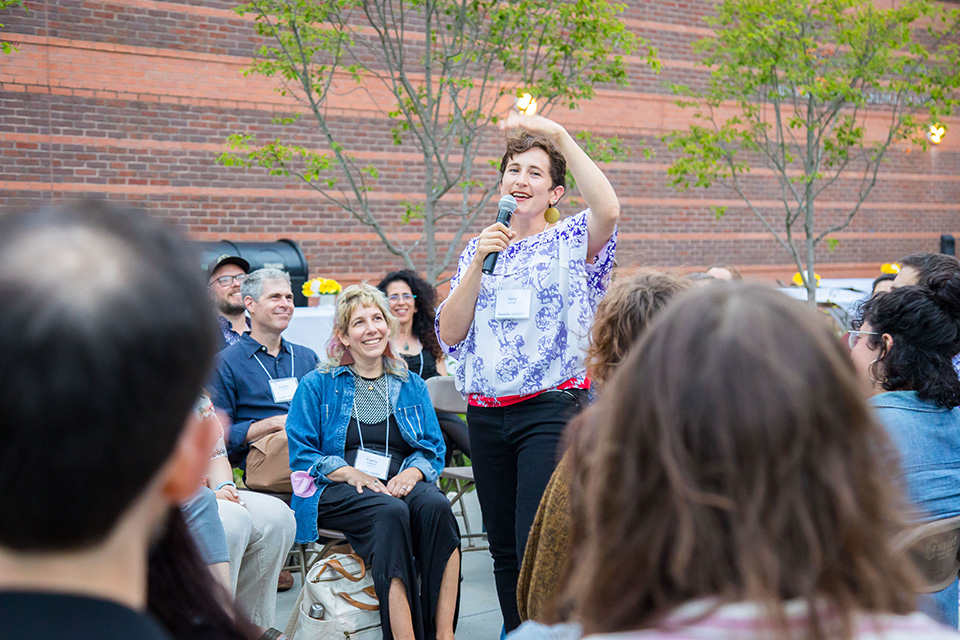
Making connections and expanding upon the learning.
Expand All
June 12
- 5-5:15 p.m. — Check in, Sherman Hall
- 5:15-6:15 p.m. — Dinner/Welcome, Sherman Patio. Introduction by Laura Yares and Galeet Dardashti.
- 6:15-7:15 p.m. — Session 1: Making Our Mark: Messy Mark-Making as a Form of Art, Sherman Hall and Feldberg Terrace. Facilitator: Shirah Rubin
- 7:15-7:45 p.m. — Dessert, Sherman Hall Patio
- 7:45-9 p.m. — Session 2: Opening Through Song: Jewish Communal Singing as Liberatory Connection with Self and Other, Sherman Hall Patio. Facilitator: Ilana Lerman | Let My People Sing!
June 13
- 7:30 and 7:50 a.m. — Shuttle from Courtyard Marriott Waltham - Make sure to sign up Sunday night on the sheet in Sherman Hall
- 8 a.m. — Breakfast, Sherman Hall Patio
- 8:30-9:30 a.m. — Small Group Debrief, Sherman Hall Patio
- 9:30-10:30 a.m. — Session 3: Perspectives from the Learning Sciences: How Artistic Experiences Support Deep Engagement, Sherman Hall. Keynote speaker: Kimberly Sheridan.
- 10:30-10:45 a.m. — Break | Check your email/take care of your needs
- 10:45-11:15 a.m. — Small Group Debrief, Sherman Hall Patio
- 11:15 a.m.-12:30 p.m. — Session 4: Uncomfortable Questions and Complex Identities: Exploring Race, Ethnicity, Discrimination and Diversity through Jewish Cultural Arts, Sherman Hall. Panelists: Galeet Dardashti, Rachel Linsky, Jenni Rudolph, and Anthony Mordechai Tzvi Russell. Moderator: Tobin Belzer.
- 12:30-1:15 p.m. — Lunch and Small Group Debrief, Sherman Hall Patio.
- 1:15-1:30 p.m. — Break | Check your email/take care of your needs
- 1:30-2:30 p.m. — Session 5: Many Learners at Many Tables: Exploring the Diverse Landscape of Jewish Learning through Jewish Art. Eva Heinstein, "Supporting the 21st Century Jewish Cultural Renaissance,” Luria 1. Laura Mandel, "Art Artistry Pecha Kucha," Geller. Lex Rofeberg, "Jewish Art is Living Torah — Not a Gateway-Drug to Synagogue Membership," Luria 3.
- 2:30-2:55 p.m. — Session 6: Siyyum Viewing of the Graphic Recording, Sherman Hall. Facilitators: Galeet Dardashti and Laura Yares
- 2:55-3 p.m. — Conference Conclusion, Sherman Hall. Jon Levisohn.
- Nili Alon Amit — The David Labkovski Project
- Ellen Alt — Park Avenue Synagogue, Schechter Manhattan
- Sharon Avni — City University of New York
- Lynda Bachman — Gann Academy
- Tirtzah Bassel — OneTable
- Tobin Belzer — University of Southern California — Center for Religion and Civic Culture
- Sarah Benor — Hebrew Union College — Jewish Institute of Religion
- Jethro Berkman — Jack, Joseph and Morton Mandel Foundation
- Judy Bolton-Fasman — JewishBoston
- Lou Cove — CANVAS
- Galeet Dardashti — New York University
- Karyn Knight Detering — Ideas Take Shape
- Motl Didner — National Yiddish Theatre
- Lonnie Firestone — Exploring Black Narratives
- Ziva Hassenfeld — Mandel Center for Studies in Jewish Education
- Eva Heinstein — Jack, Joseph and Morton Mandel Foundation
- Miriam Heller — Stern Hebrew Union College — Jewish Institute of Religion
- Mark Kligman — University of California, Los Angeles
- Jonathan Krasner — Mandel Center for Studies in Jewish Education
- Sophie Krentzman — Combined Jewish Philanthropies
- Sarah Krulik — Charles and Lynn Schusterman Family Philanthropies
- Ilana Lerman — Let My People Sing!
- Jon Levisohn — Mandel Center for Studies in Jewish Education
- Rachel Linsky — ZACHOR: Honoring WWII Holocaust Survivors Through Dance
- Jeremiah Lockwood — Milken Center for Music of Jewish American Experience, UCLA
- Laura Mandel — Jewish Arts Collaborative
- Silvina Mizrahi — Artist and Educator
- Sharon Feiman-Nemser — Mandel Center for Studies in Jewish Education
- Hankus Netsky — New England Conservatory of Music
- Eden Pearlstein — Ayin Press
- Zo Penina — Baker Brown University-RISD Hillel
- Lex Rofeberg — Judaism Unbound
- Shirah Rubin — Co-Imagine Arts
- Jenni Rudolph — LUNAR: Asian American Film Project
- Anthony Russell — Vocalist, Performer, Composer, Arranger
- Ted Sasson — Jack, Joseph and Morton Mandel Foundation
- Uri Schreter — Harvard University
- Charlie Schwartz — Lehrhaus
- Adam Sher — Jewish Studio Project
- Kimberly Sheridan — George Mason University
- Franny Silverman — Me: Franny
- Bradley Solmsen — Park Avenue Synagogue
- Tova Speter — Artist, Art Therapist, Art Consultant, Art Educator
- Laura Vitale — Kavod JOCISM Caucus
- Shani Winton — Mandel Center for Studies in Jewish Education
- Laura Yares — Michigan State University
Dr. Laura Yares is assistant professor of religious studies at Michigan State University, and an affiliate scholar with the Mandel Center for Studies in Jewish Education at Brandeis University. She is a scholar of American Judaism with a multidisciplinary training in history and ethnography. With Sharon Avni (CUNY), she is currently at work on a book-length study of Jewish learning in cultural arts contexts.
Anthropologist and performer/composer Dr. Galeet Dardashti has earned a reputation as a trail-blazing performer, educator and advocate of Middle Eastern and North African Jewish culture. She is widely known as leader/founder of the all-woman Sephardi/Mizrahi ensemble Divahn, and through her multi-disciplinary commissions The Naming (Six Points Fellowship) and Monajat (FJC, IU, and MFJC); she is currently Artist-in-Virtual-Residence at Indiana University's Jewish Studies program. Dardashti's scholarly publications examine Israeli music/media and cultural politics in Israel and the U.S. She has held postdoctoral fellowships at NYU and Rutgers and was assistant professor of Jewish music/musician in residence at JTS in Manhattan.







